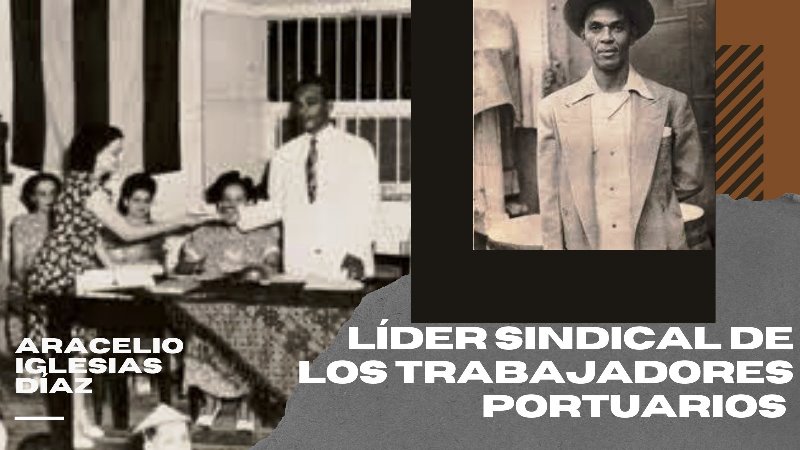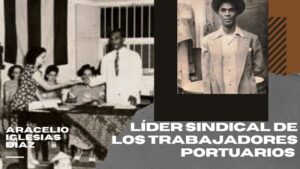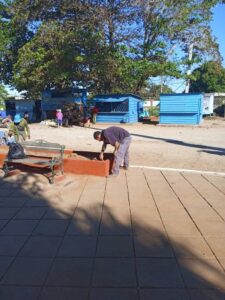The Red Czar of Havana’s port


Cuba’s dock workers must find in Aracelio Iglesias Diaz a symbol of rebelliousness and leadership, not only for his prestige, responsibility and moral authority, but also for his prolific work for the Cuban trade union movement.
This emblematic labor leader, born on June 22nd, 1901 in the western province of Pinar del Río, was linked to the port workers from very early on, empathizing with their precarious economic situation and advocating for the improvement of their working conditions.
Thanks to these convictions he was elected general secretary of the Longshoremen and Day Laborers Union and of the Local Maritime Workers Federation of the Port of Havana, as well as member of the executive committee of the Confederation of Cuban Workers and of the Communist Party, achieving important successes such as the establishment of rotating lists, wage increases and paid rest, among others.
Precisely this tireless work of Aracelio for the progress of the working class with an entirely humanistic, selfless and altruistic vision had in Yankee imperialism and the rulers of the time its main detractors. It is not surprising then the strong repression of President Ramón Grau San Martín towards figures like Jesús Menéndez and Iglesias Díaz himself due to the massive acceptance and the mobilization capacity that both had.
Witness to this was also Carlos Prío Socarrás, who in October 1948 assumed the highest leadership of the country and, in the middle of a discussion for wage improvements for the dockers, had a clash with Aracelio when he asked him if he thought he owned the docks and, to his surprise, the energetic answer was not long in coming and the latter asked his interlocutor (and not in the best possible way) if he thought he owned the country.
This uncomfortable moment as well as the effervescence of his anti-communist ideals and his intention to strengthen the iron fist with the union leaders motivated Prío to put an end to whoever meant an obstacle to his interests, materializing this bloody will on October 17th, 1948. Aracelio was then at the premises of the Port Workers Union when he was violently shot and died the next day in surgery.
Seventy-five years after that crime, the legacy of this remarkable port union leader whose mettle, courage and sense of justice still arouse the admiration of those who proudly study and remember the value of his actions.
Written by Yadiel Barbón Salgado.




